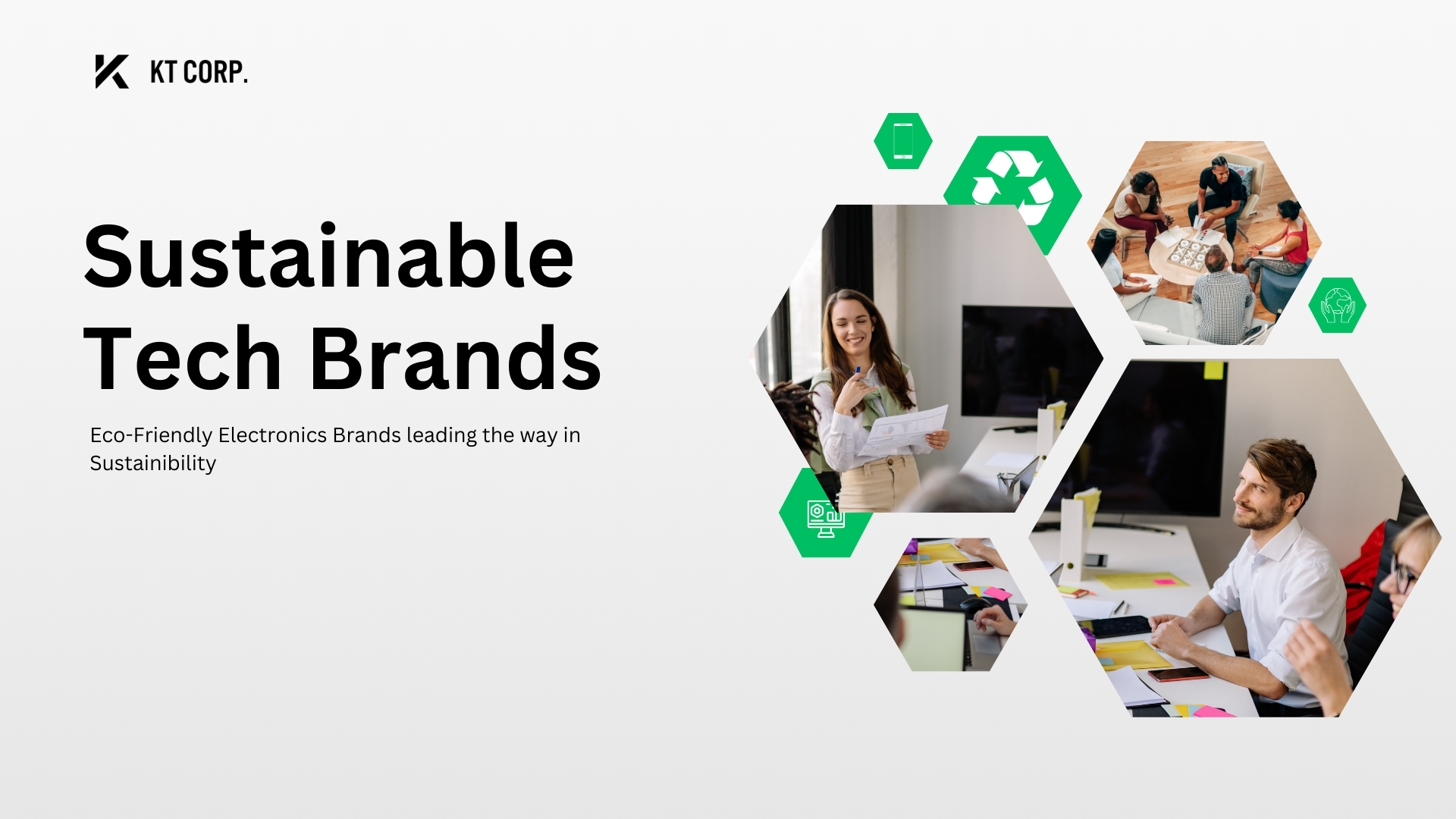
Sustainable Tech Brands
Did you Know of any tech companies that leading the way in sustainable practices? I wanted to share some interesting information of eco-friendly brands that are leading the way in the Circular Economy.
Apple – Recognized as one of the most prominent tech brands in the 21st Century, one of the reasons that Apple is a successful brand is that they are dedicated to innovation, user experience and design products that are not only aesthetically pleasing but also functional. The dedication has allowed them to differentiate themselves from other competing companies to become one of the biggest the world. What is Apple doing for Sustainability? Based on my research data, Apple sustainability efforts is being carbon neutral for it’s product and supply chain in the next 6 years. Apple has shown unwavering commitment on running it’s global operations on 100% renewable energy, this spans across all all of their data centers, offices and retail locations. Apple also has rolled out a Trade in Program , that allows customers to turn in their old devices for proper recycling. Apple uses recyclable materials in their products and has plans to use 100% recycled or renewables in all of their products.
Microsoft – Microsoft is recognized as one the largest vendors of computer software worldwide. It’s also known as one the leading providers of cloud computing services, video games, computers and various gaming hardware. Microsoft has also taken significant steps towards a more sustainable business by implementing more circular economy model in its operations. Over the years Microsoft has show their leadership through their commitment to recycling and repurposing electronic waste. They have developed many recycling programs to ensure that end of the life devices are properly collected , dissembled, and components are repurposed or recycled. Microsoft has also prioritized the use of renewable energy sources. They have ambitious plans of becoming a carbon negative by the year 2030.
Dell – Another well known tech brand , Dell is pioneer in introducing new technologies and innovations in their computer systems. They offer a wide range of customization options for their computers, that enables their customers to choose specifications that can meet their needs. Dell has established a closed-loops recycling program where they recycle plastics from end of life electronics and repurpose them into new products. Their closed loop recycling efforts they extract valuable materials like gold from old electronics and reuse them in the production of new products, reducing the need of environmentally impactful mining.
Hewlett Packard – HP is manufacturer founded in 1939 of various software and computer services and is best known for producing their line of printers, scanners, digital cameras, calculators, personal digital assistants, servers and workstation computers. HP has been actively involved in closed loop recycling programs. Even in their printers they introduced many innovations with the main goal of reducing environmental waste , for example they developed printers that use water based inks which are more environmentally friendly. HP has also integrated sustainable practices into their supply chain efforts by working with their suppliers to ensure responsible sourcing of materials. Hp has also established take back programs that allow customers return end of life products for responsible recycling.
Google– Google is a search engine company that was founded on September 4 1998,by Larry Page and Sergey Brin. More than 70 percent of worldwide online search requests are handled by Google. Google has shown that they have taken initiative in the circular economy by purchasing renewable energy to power it’s data centers and operations. Google uses sustainable materials in their products and has implemented water stewardship practices to reduce water consumption in its data centers. Through their parent company Alphabet, they continue to invest in projects and technologies that align with sustainability goals. They invest in clean energy circular economy startups and innovative solutions that minimizing environmental impact.
Samsung – Samsung is a South Korean Company and one of the largest producers of electronic devices. Samsung produces a wide variety of devices , everything from consumer electronics to appliances, semi conductors , memory chips and more. Samsung offers the best quality of amongst most android smartphone manufacturers especially those in the higher price ranges. When you purchase a Samsung device you can be rest assured that your device will last a long time and will not fall apart. Samsung has always been designing products with sustainability in mind. Everything from including eco friendly materials and incorporating features that enhance energy efficiency and recyclability. Samsung has developed recycling programs for end of life products. These programs encourage consumers to return their old devices for proper disposal and recycling. Samsung has also recently explored with upcycling program in which enabled users to repurpose into ioT devices extending the lifecycle of the products promoting a circular approach. Also, Samsung has invested in renewable energy sources to power its manufacturing facilities and reduce it’s carbon footprint.
IBM – IBM is one of the largest IT companies with operations in over 170 countries. IBM is mostly known for its hardware and software products, that include servers, networking equipment, and storage systems. IBM has made efforts to enhance energy efficiency of it’s data centers. They have very ambitious goals in regards to renewable energy. the company has committed to achieving 55 % renewable energy consumption by 2025 and becoming carbon neutral by 2030. IBM has also implemented e-waste management programs to responsibly handle end of life products. The company aims to minimize electronic waste by promoting recycling, refurbishing and proper disposal of hardware.
In conclusion , it’s clear that these companies are not just leaders in their industry and niche, they are environmental stewards. With the level of commitment towards renewable energy, circular economies, and eco-friendly practices, they are redefining what really matters in the circular economy which include designing for longevity, educating the public, raising awareness ,extending the life extension of products, maximizing efficiency, recycling etc.
